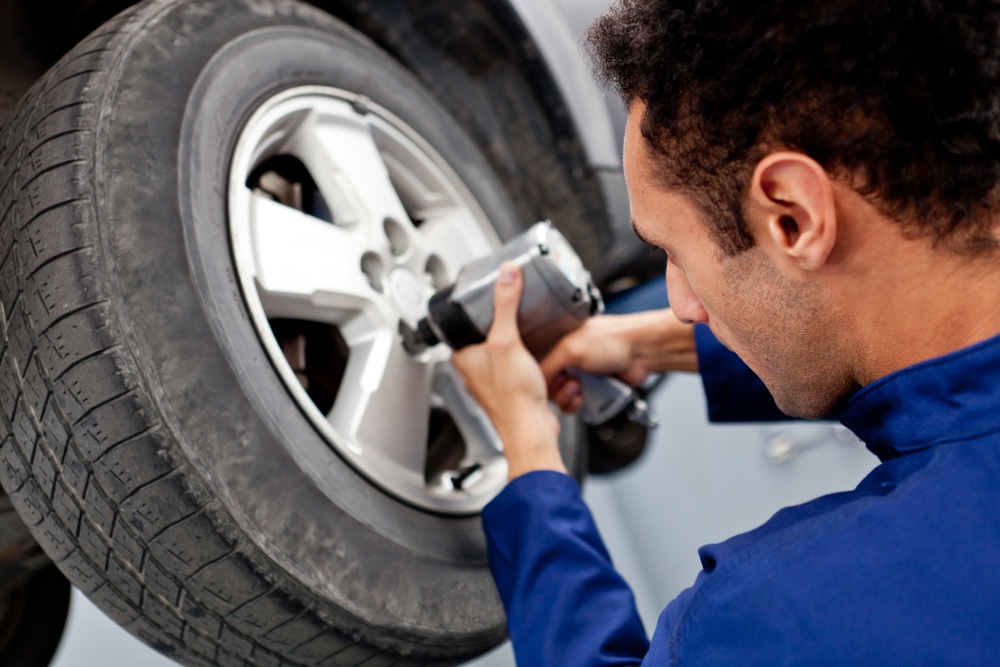
Tyre maintenance is not only an essential aspect of fleet maintenance that improves roadworthiness and safety, but is also, if managed in the right way, about cutting down on your fuel bills. If you are a fleet manager, you are most probably already aware that checking the tyre pressure on your fleet’s vehicles increases the safety of your drivers, but you might not be fully aware that appropriate tyre maintenance also cuts fuel consumption.
However, many cars and vans are currently operating on underinflated tyres. They are not only ignoring the benefits of maintained tyres for fuel economy purposes, but also putting drivers and other road users at high risks. There is the continual risk that a roadside inspection can force a vehicle off the road with immediate effect. A recent survey from UK charity Tyresafe states that 57% of vehicles—cars and vans—are running on underinflated tyres. The impact of skipping tyre maintenance (checking tyre tread and pressure) has been calculated and is substantial: £600m/€678.9m is spent unnecessarily on fuel because of incorrect maintenance.
When vehicles are driven with tyres that are below the recommended pressure, the risks of incident increases sharply, as well as fuel consumption. As a matter of fact, the surface of the tyre in contact with the road is cut by half when the tyre pressure is 7psi below the recommended pressure. The study by Tyresafe found that more than a third of tyres are being driven 8psi and more under the recommended pressures. Dangers arise because the vehicle is more difficult to control, particularly in wet weather. An underinflated tyre increases roll resistance, reduces the tyre tread lifespan and increases fuel consumption. In extreme cases, the tyre could even burst.
These numbers show a lack of concern from drivers and fleets regarding the dangers and the costs of underinflated tyres. We advise your drivers to check tyre pressures regularly, before every long journey and especially if vehicles are under heavier load than usual. A proper tyre pressure will decrease the risks of incident for your drivers, thus increasing general roadworthiness and helping you save money on fuel. Remember that it is an essential part of the recommended daily walkaround checklist that are both recommended by RSA/HSA of Ireland and the UK’s DVSA—so its omission might interfere with the compliance of your fleet.
Recommendations from the DVSA regarding tyres daily walkaround checks include checking as much of your tyres and wheels as you can see. There must be
- a minimum tread depth of 1.6mm
- sufficient inflation of each tyre
- no deep cuts in the sidewall
- no cord visible anywhere on the tyre
- no missing or insecure wheel-nuts
You can get three penalty points on your licence for each tyre that isn’t safe and legal.
HSA/RSA recommend that tyres are checked for
- pressure
- damage
- correct inflation
- tread depth—the tread must not be worn to the extent that the tread indicator contacts the road surface. The legal minimum tyre tread depth is 1.6mm.
- deep cuts, cracks, bulges
- evidence of carcass failure
- separated or perished rubber
Make sure you communicate with your drivers on the importance of checking tyre pressures; and if you need to streamline your fleet maintenance and walkaround checks process, SynX can definitely help. We are now offering a free 30-day trial on our SynX Maintain compliance and maintenance software (with mobile app); you can fill in the form with your details on our dedicated page and one of our fleet management experts will be in touch to set up an account.



